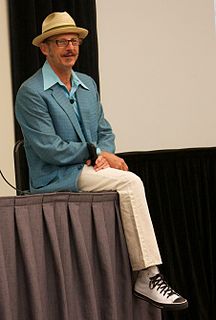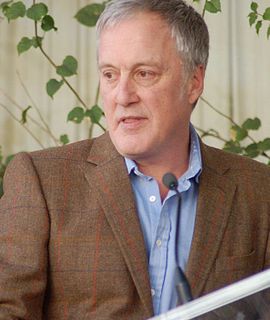A Quote by Maria Semple
When I wrote for TV, I was always thinking in terms of character and story. After fifteen years, it became hard-wired in me.
Related Quotes
The Time that Remains is a way of interpreting a certain ambience or emotion. These are the stories that my father told me over the course of fifteen or twenty years. I used to listen to him. From the cowardly part of my character, I'm always in fear of not telling the right story. I'm not interested in making epics.
What drew me to Batman in the first place was Bruce Wayne's story, and that he's a real character whose story begins in childhood. He's not a fully formed character like James Bond, so what we're doing is following the journey of this guy from a child who goes through this horrible experience of becoming this extraordinary character. That, for me, became a three-part story. And obviously the third part becomes the ending of the guy's story.
I wrote Her First American and I always say it took me eighteen years. It took me that long was because after about five years I stopped and wrote Lucinella. I got stuck; it was too hard to write. Lucinella felt like a lark. I wanted to write about the literary circle because it amused me, and I allowed myself to do what I wanted to do. It's just one of the things I'm allowed to do if I feel like it.
In novels you're able to occupy character's internal thoughts and it's really hard to do in a film or a TV show. When you're reading a character's thoughts or when it's in first person, you're reading kind of their own story, so you have the opportunity to see what makes that character complex or complicated. And to me that's what the whole point of fiction is.
It's easy to leave people wanting more after the first episode, but it's hard to leave people wanting more after the 24th episode. And it's my job, more than anybody else's, to keep that in mind. One season, in TV terms, is nothing. You need to hit it for three or four seasons, and then you're doing well, in TV terms. Then, you've done your job.







































